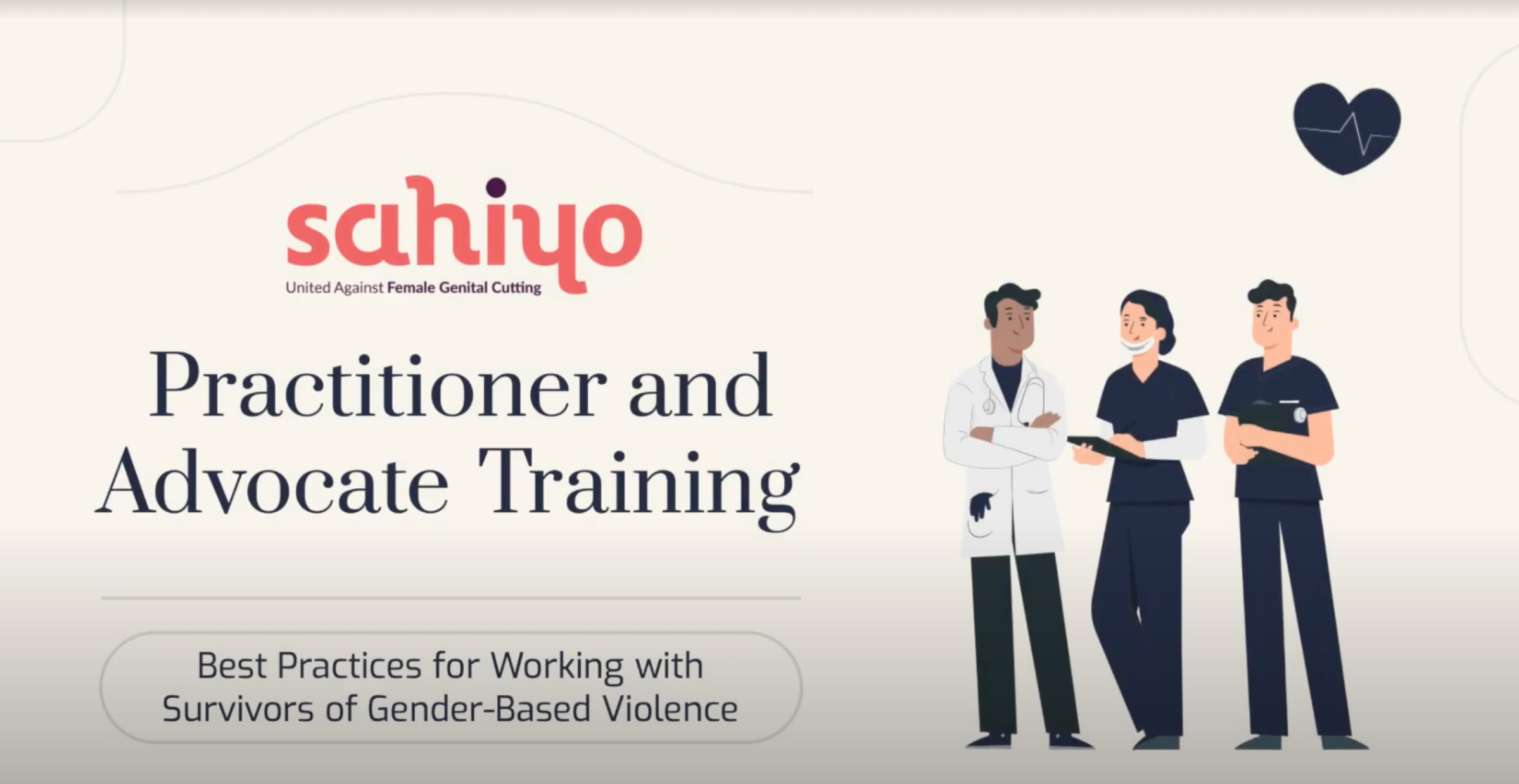In June Sahiyo partnered with Hidden Scars to host training for practitioners and advocates working with survivors of gender-based violence (GBV) and female genital cutting (FGC).
Gender-based violence (GBV) is a reality for many women and girls. The World Health Organization reports that one in three women will experience sexual or physical violence in her lifetime. Yet, GBV often remains hidden and shrouded in silence and shame. At the core of providing better prevention, protection, health, and social support services for women and girls are stronger data, enhanced research, and community engagement. Our presentation explored how practitioners can provide trauma-informed care to survivors of GBV, using FGC as a case study. We also provided resources for clinicians and other front-line professionals who may come in contact with women impacted by both, and who are looking to better understand how to provide better care.
While Sahiyo’s expertise is in addressing FGC, we acknowledge that FGC is a form of gender-based violence and child abuse. Our team felt that many of the lessons that can be learned about how to help survivors of FGC could also be applied to all forms of GBV. Like other forms of gender-based violence, such as domestic violence, FGC is a learned behavior of childhood, and is often surrounded by a culture of silence and shame, and is a form of generational violence. However, GBV can also include childhood marriage, rape, sexual assault, honor crimes, domestic violence, and other crimes against women. While we used FGC as a case study, our goal was to create training that would allow practitioners to provide better care to all survivors of gender-based violence.
During this event, we provided an overview of FGM/C and GBV, as well as shared videos from our Voices to End FGM/C project. These videos helped our audience better understand the complicated emotions and experiences survivors go through, and to begin to think about how they as providers can better support them in their journey toward healing. We also shared tools such as the George Washington University FGM/C Toolkit, Mumkin, and other resources that are available to help them and their organizations think about how to provide better care to survivors.
Finally, in order to facilitate conversations and help our guests practice communicating with survivors, we also hosted mock conversations. These conversations were held with the goal to help practitioners become more comfortable speaking with survivors and to practice having productive conversations with patients.
We strongly encourage anyone who works in healthcare or provides direct services to survivors of GBV or FGC to watch the recording of this event on our YouTube page, or check out these additional resources below:
- Addressing FGC in the Clinic: A Dialogue Between Survivors and Health Care Professionals
- Diagnosis, Management, and Treatment of Female Genital Mutilation or Cutting in Girls
- Female Genital Mutilation/Cutting: An Under-recognized form of Gender-Based Violence in the U.S.

